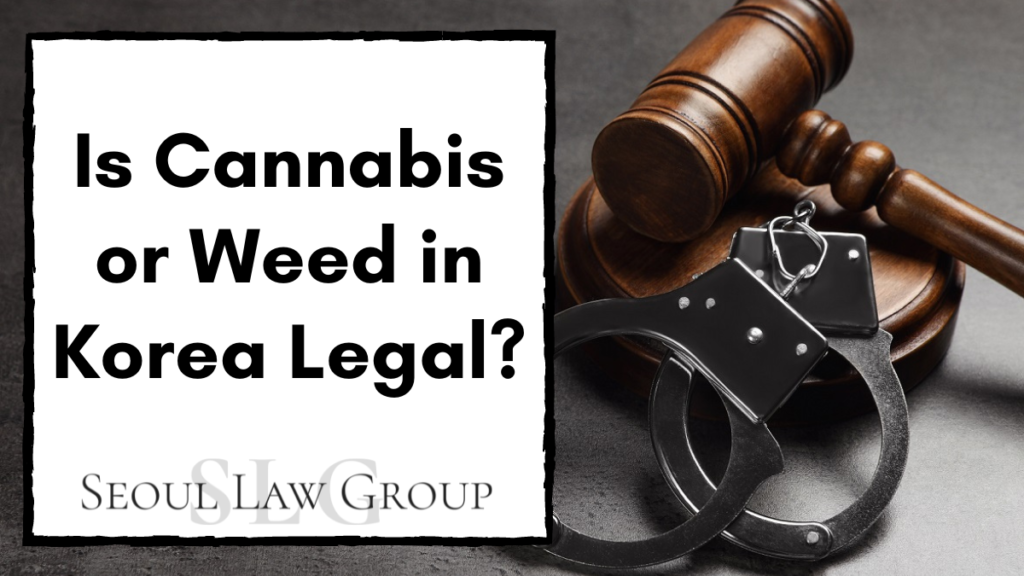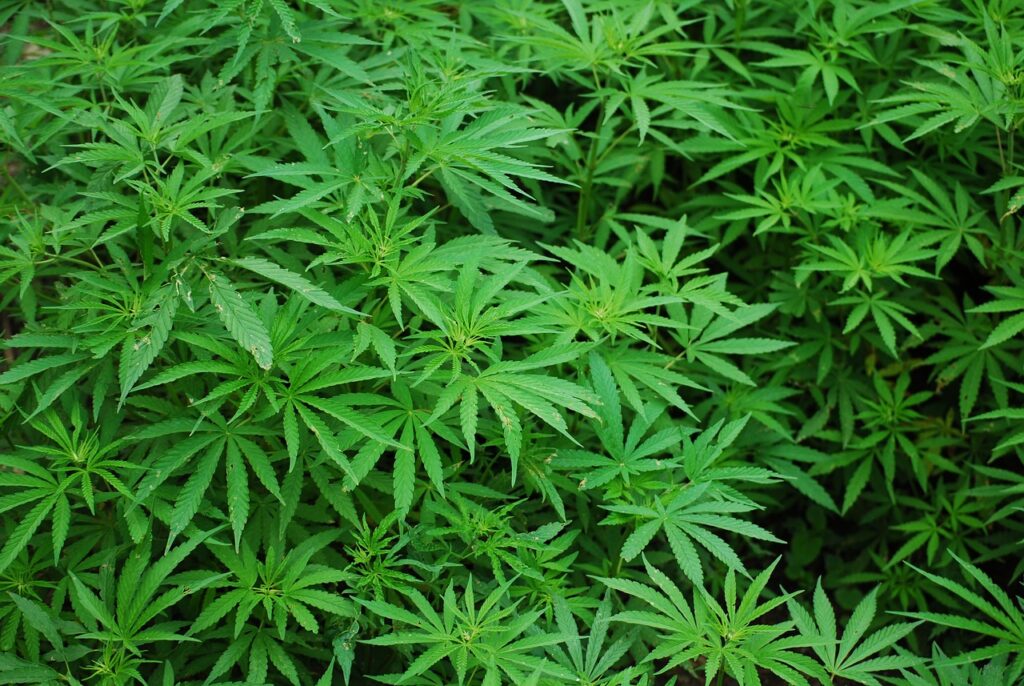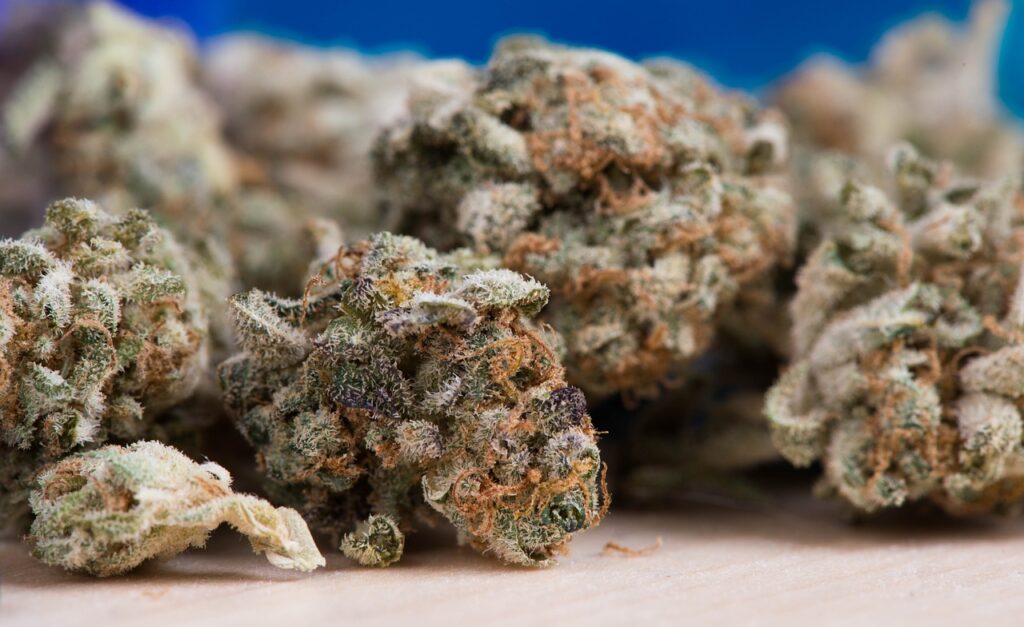Is Cannabis or Weed in Korea Legal? What Are The Laws In Korea Regarding Marijuana?
The legalization of marijuana (especially in Korea), also referred to as weed or cannabis, is a controversial topic around the world. Many places have legalized the use of medicinal marijuana, while others have even legalized the recreational use of the drug.
In the case of South Korea, the use of medicinal marijuana has only recently been legalized despite countless heated debates. Although South Korea is one of the first Asian countries to legalize weed for the sake of one’s health, the drugs in Korea continues to garner negative attention and societal disapproval that forbids any recreational use.
In order to avoid breaking the law during your stay in the country, Seoul Law Group will provide you with all the necessary information on the legal and illegal use of cannabis in South Korea while also providing examples of several real-life cases.

Table of Contents
Definition of Cannabis in Korea
In South Korea, the term “narcotics” means narcotic drugs, psychotropic substances, and cannabis. So, cannabis is not “narcotic drugs” nor “psychotropic substances,” but still treated as one of “narcotics” in its own right.
The Narcotics Control Act, Article 2, Section 4 defines cannabis as:
The term “cannabis” means any of the following substances: Provided, That this shall exclude the seeds and roots of the cannabis plant (referring to Cannabis sativa L.; hereinafter the same shall apply), the mature stalks of such plant, and the products manufactured using them:
(a) The cannabis plant and the resin extracted therefrom;
(b) All the products manufactured using the cannabis plant or its resin as their raw materials;
(c) Chemical compounds, similar to those specified in item (a) or (b), which shall be determined by Presidential Decree;
(d) A mixture or concoction that contains substances specified in items (a) through (c);
The Narcotics Control Act (2000), Article 2, Section 4 defines cannabis as:
The term “marijuana” means the hemp plant (Cannabis Sativa L.), the resin extracted therefrom, and all the products manufactured using the hemp plant or its resin as their raw materials: Provided, That this shall exclude the seeds and roots of the hemp plant, the mature stalks of such plant, and the products manufactured using them.
As one can see, marijuana is illegal not only in its natural form but in any product form as well. In order to see how the Narcotics Control Act came to be, we will introduce a brief history of cannabis in South Korea.
History of Cannabis in Korea
Cannabis was regularly used in ancient Korea and is believed to be introduced to the region via the Silk Road from South Asia. Hemp also grows naturally on the peninsula, particularly in Gangwon Province. It was commonly used for fabric in traditional clothing, a dust guard for homes, rope, and medicine for various aches and pains – particularly constipation. Regular usage of the plant continued well into the Japanese colonial period, with Japan even boosting the growth of hemp, to get rid of the fear of forcibly conscripted soldiers with drugs. But it halted with Korea’s independence from Japan, in 1945.
Korea’s first president, Rhee Syngman, created the Narcotics Act (마약법) in 1957 which forbade the use of marijuana, poppies, opium, and cocaine. Interestingly, the act specifically outlawed Indian-grown marijuana, which allowed the Korean cannabis market to flourish. The market continued to grow in the 1960s under the influence of the U.S. army in Korea and many popular singers at the time began to smoke the plant. With the hippie movement of the 1960s encouraging the smoking of the plant, Koreans referred to the drug as “happy smoke.”
In the 1970s, cannabis in all forms was banned under the Cannabis Control Act (대마관리법) of 1976. This began widespread negative perception of the weed, fueled by the War on Drugs rhetoric of the United States that also came about during the 1970s. The Cannabis Control Act of 1976 later merged with the Narcotics Act of 1957, into the Narcotics Control Act (마약류 관리에 관한 법률) in 2000. Cannabis remained completely illegal until 2018 when Shin Chang Hyun, and other ten members of the National Assembly, proposed a bill that would revise the act to exclude medicinal marijuana. His proposal was approved under the Ministry of Food and Drug Safety. In November of the same year, it was partially legalized.
Today, Korea is exclusively importing CBD marijuana that does not contain THC*. While South Korea has historically been a conservative country, the legalization of medical marijuana has propelled it to be considered more progressive. A conversation has begun to break out in Korean society about the potential benefits and hindrances of cannabis. The conversation continues to this day.
*Tetrahydrocannabinol is the principal psychoactive constituent of cannabis and one of at least 113 total cannabinoids identified on the plant.

Cannabis Laws in Korea
1. Medical Use
In South Korea, cannabis was only approved for medicinal use in 2018 under the Narcotics Control Act. But the use of medical marijuana is also tightly regulated, with patients having to go through the difficult procedure to gain permission for its use.
First, the patient should submit the application to the Ministry of Food and Drug Safety. An application to obtain medicinal cannabis requires a general application form, a doctor’s diagnosis including dosage, as well as a patient’s medical records. Furthermore, the patient must possess a doctor’s note that claims no other substitute medicine is available.
Approval is granted on a case-by-case basis and is never guaranteed. Even if you have been previously approved by your home country for medicinal marijuana, you will need to go through the local medical system to receive the drug in South Korea.
Second, after the Ministry of Food and Drug Safety grants the patient a permission, the patient can apply for a specific hemp medicine they need to the Korea Orphan Drug Center (한국희귀필수의약품센터). This Center is a government institution that facilitates a patient’s access to stronger drugs.
But not all the hemp medicine can be given. The Korea Orphan Drug Center only uses four types of CBD medicines that are also legal in the United States, Canada, and many European countries. Korean law bans imports and exports of cannabis to countries that have not fully legalized marijuana. This makes the process of finding products for legal import somewhat difficult.
The patient can get the hemp medicine only through the Korea Orphan Drug Center, and there is no other legal way to do it. The Center is in 6, Mugyo-ro, Jung-gu, Seoul. If the patient is too young or too sick to visit the Center to get the drug, then their family or nurse can visit the Center instead as their guardian. Such tight regulation demonstrates how cannabis is perceived by the medical community of South Korea, as well as the general population.
Meanwhile, South Korea’s southeastern province of Gyeongbuk is the only regulation-free zone for growing and distributing hemp. The city of Andong has traditionally grown hemp fabric for thousands of years and is the hub of the project today. Licensed farmers are legally permitted to cultivate cannabis here for export as well as medical purposes, although they continue to face backlash from the community.
2. Recreational Use
Recreational cannabis remains strictly forbidden under Korean law. The South Korean government makes it clear that its citizens are subject to their country’s criminal code no matter where they travel in the world. Thus, the government strongly advises Korean citizens to refrain from using cannabis abroad. For example, when Canada legalized recreational marijuana in 2018, 23,000 South Korean students studying abroad received a message from the Korean government stating that if they smoked it, they would be punished under Korean Law. Similar policies apply to gambling abroad.
Despite Korea’s modern push towards a more progressive and open government, the country remains largely opposed to marijuana and the use of recreational drugs at large. Users of marijuana should not expect sympathy in a court case related to the possession or sale of cannabis.

Sentence for Cannabis Abuse in Korea
A violation is punishable by up to five years in prison, or a fine of up to 50 million won (around 42,500 USD) as of November 2021. Sentences vary based on the person’s relation to the drug, which will be explained in further detail. Please read the following information carefully to avoid committing a cannabis-related crime in South Korea.
If you administer or possess marijuana: 8 months – 1 year and 6 months
If you trade or assist in the trade of marijuana: 1 – 2 years
If you import or manufacture marijuana: 2 – 4 years
The sentences listed above can be increased or decreased according to various circumstances. For instance, the sentence would be increased if you are a habitual user, if you used it around the school zone, if you are a member of a large drug cartel, etc. But the sentence would be decreased if you used it the first time in your life, if you are willing to stop and go through the rehabilitation, if you were in an extenuating circumstance, etc.
It is also important to note that one action counts as one crime. If you smoked cannabis three times on the same day, that counts as three separate crimes and you will be punished accordingly. The reason the Korean government enforces this is because it is used as a determinant of one’s addiction level.
Cannabis Case Study in Korea
Cannabis is less popularly used today compared to other synthetic drugs, although there are numerous instances where people were arrested for possession. Nearly 12,000 people were arrested for drug crimes in 2015, with 1 out of every 100 cases related to cannabis.
Under the Cannabis Control Act of 1976, President Park Chung Hee turned his attention toward pop singers performing on U.S. Army bases. The President knew this was a hotbed of cannabis usage and purposefully scapegoated entertainers to strengthen his Control Act and gain sympathy from the public. In 1975, Park arrested over 50 well-known celebrities for marijuana usage, including the celebrated rock singer Shin Jung Hyeon. Shin was imprisoned for four months following his arrest and was even sent to a mental hospital.
In modern-day Korea, many high-profile K-pop stars have been prosecuted for the recreational use of marijuana. Some of these artists include Kim Kye Hoon, PSY, BTOB’s Jung Il-Hoon, and Big Bang’s T.O.P. The sentences varied from 25 days to 2 years.
In another situation, rappers Owen, Nafla, Loopy, Bloo, and Young West reportedly smoked together in a recording studio. The information was made public and Owen lost his position on the popular TV show “Show Me The Money” under the claim, despite none of the rappers being sentenced with proof.
Although some of these entertainers received a minimal sentence, their reputations greatly suffered. Celebrities apprehended for cannabis use and other drug-related crimes often struggle to return to their previous level of stardom. Regular citizens seem to fare worse punishment, with one 29-year-old being sentenced to 6 years in prison for the import and sale of 1KG of marijuana.
We can see through these examples that cannabis is deeply frowned upon in South Korea and should not be brought into the country or used within its borders.
Cannabis Defense Lawyer in Korea
It is essential to have a defense lawyer on your side who understands the charges of drug-related instances. This is where Seoul Law Group can help.
Our specialized criminal defense attorneys are fluent in both English and Korean to provide you with expert legal services. We have years of experience in drug-related cases and offer lawyers who specialize in this specific crime. Seoul Law Group will not only make the best efforts to protect you, but also your visa status in South Korea.
